Publications
Browse our publications to discover what works
We collaborate with academics, universities, and research groups to uncover what really helps people out of homelessness. Explore our growing body of work that includes randomised control trials, systematic reviews, policy papers, and books which help to fill the gaps in our understanding of homelessness.
Featured Publication
October 22, 2025
Evidence Note: Support for Families Living in Temporary Accommodation
Evidence round up of studies on interventions for Families in Temporary Accommodation
Read more.jpg)
.jpg)
December 16, 2025
Staying Close: Pilot Evaluation
Staying Close is a programme of enhanced support for young people leaving residential care and other forms of placement and transitioning to independence. It was developed by the Department for Education. This study involved conducting a pilot evaluation of the Staying Close programme. This covered three strands of work, including a pilot impact evaluation, an Implementation and Process Evaluation (IPE), and an Economic Evaluation of the programme's costs and outcomes.
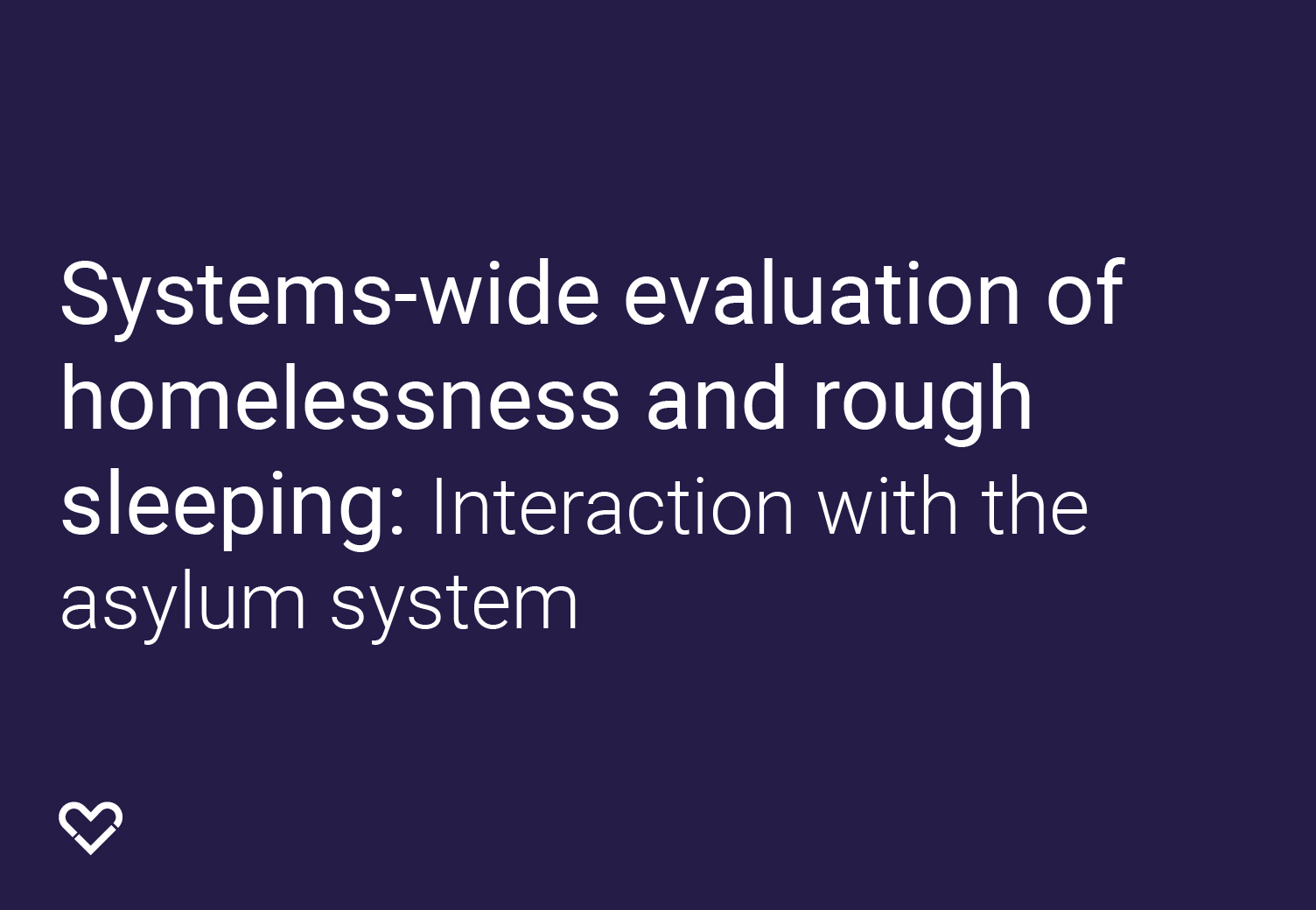
December 11, 2025
Systems-wide evaluation of homelessness and rough sleeping: Interaction with the asylum system
This Systems Wide Evaluation report focuses on the interaction between the asylum and homelessness and rough sleeping systems, drawing on qualitative insights from across England. It identifies factors that can increase the risk of homelessness throughout the transition of refugees from the asylum estate, from preparing for transition to integrating into the community. It also highlights opportunities to build on good practice by some local authorities and diaspora organisations. ide
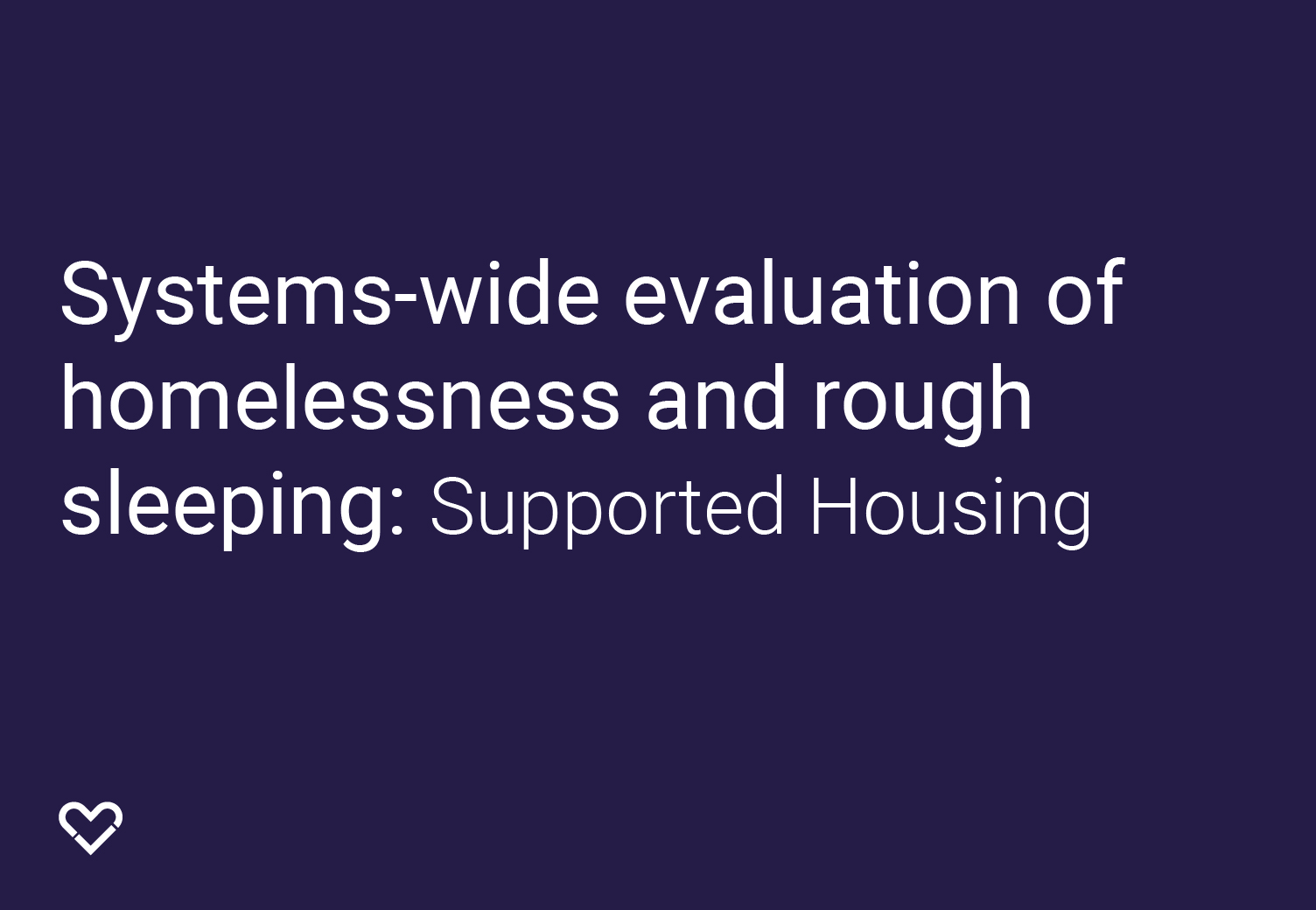
December 11, 2025
Systems-wide evaluation of homelessness and rough sleeping: Supported Housing
This Systems Wide Evaluation report focuses on the effect of commissioning, oversight and supply of supported housing on homelessness, drawing on qualitative insights from across England. It identifies structural issues, such as fragmented commissioning and the supply of supported housing, and highlights potential challenges with the implementation of the Supported Housing (Regulatory Oversight) Act 2023.
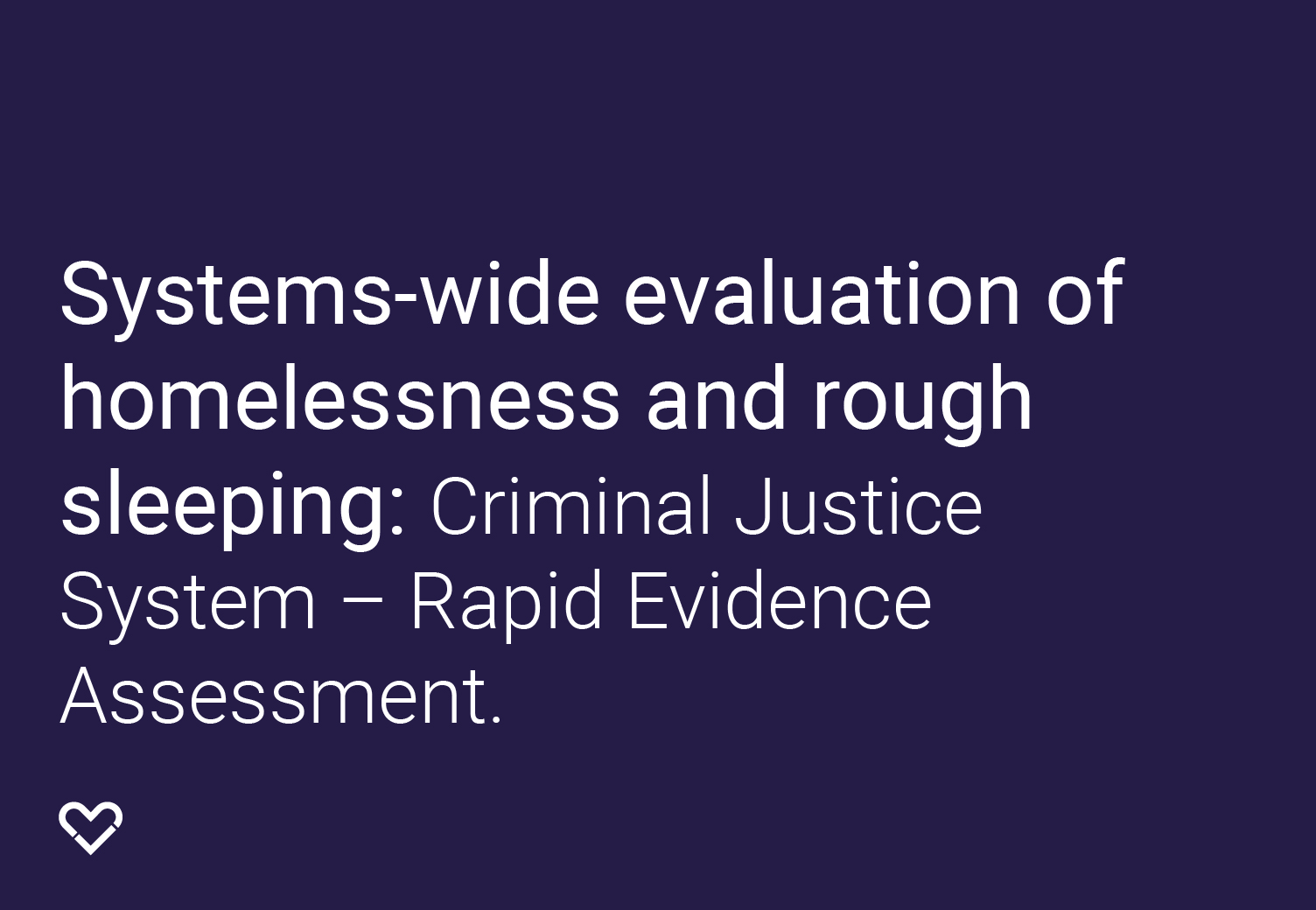
December 11, 2025
Systems-wide evaluation of homelessness and rough sleeping: Criminal Justice System Rapid Evidence Assessment
As part of our Systems Wide deep dive into the interaction between the criminal justice system and homelessness and rough sleeping systems, a rapid evidence assessment has been carried out to collate and examine learning across the UK.
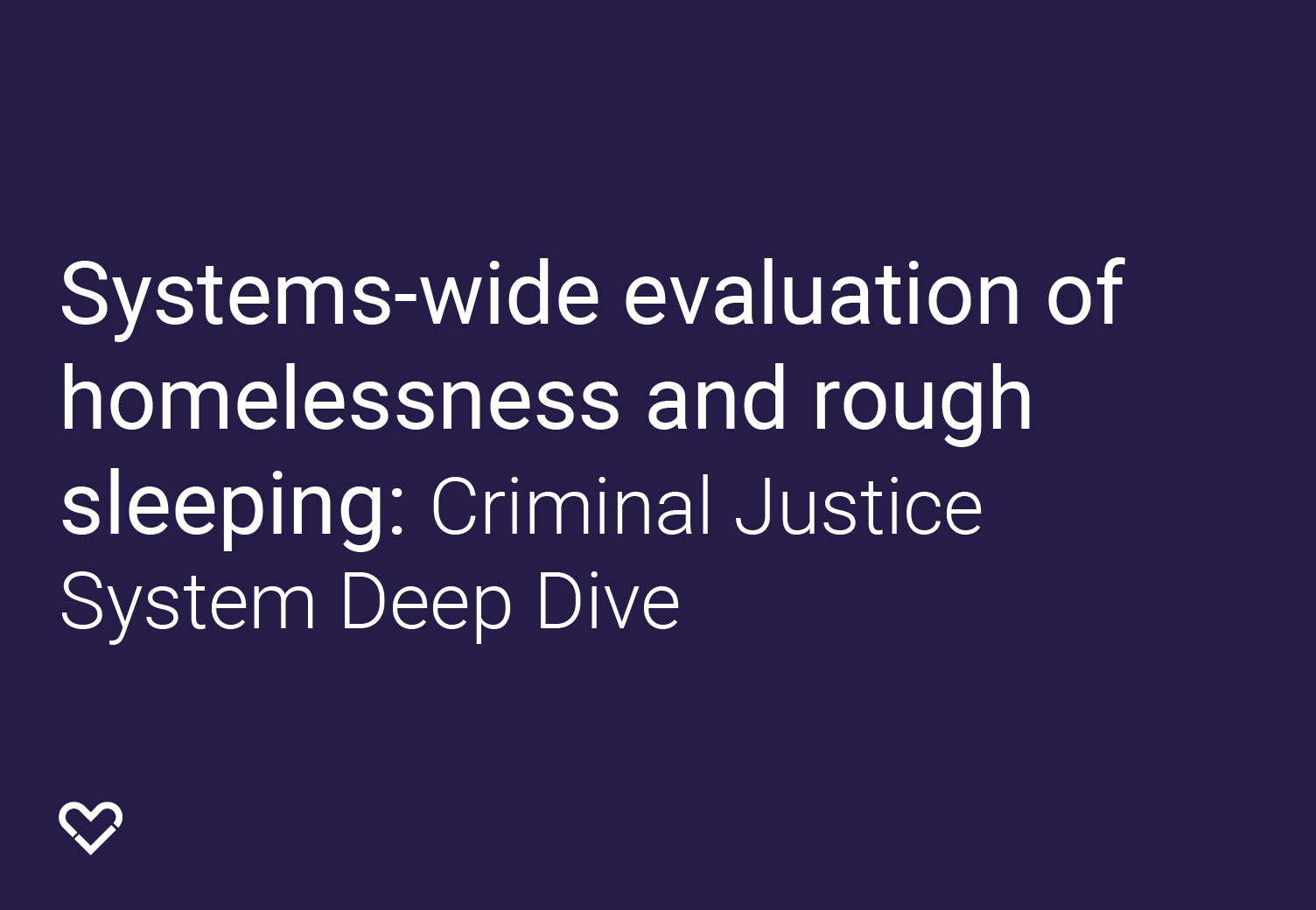
December 11, 2025
Systems-wide evaluation of homelessness and rough sleeping: Criminal Justice System Deep Dive
This report builds on the first Systems Wide interim report and complements other reports from the evaluation on policy areas that influence homelessness and rough sleeping, including supported housing, social housing allocations, and the asylum system. It focusses on the interaction between the criminal justice system and homelessness, drawing on qualitative and quantitative insights from across England. It identifies structural barriers such as limited housing stock, gaps in provision for women and those on remand, and the importance of early identification of housing needs to prevent homelessness on departure from prison.
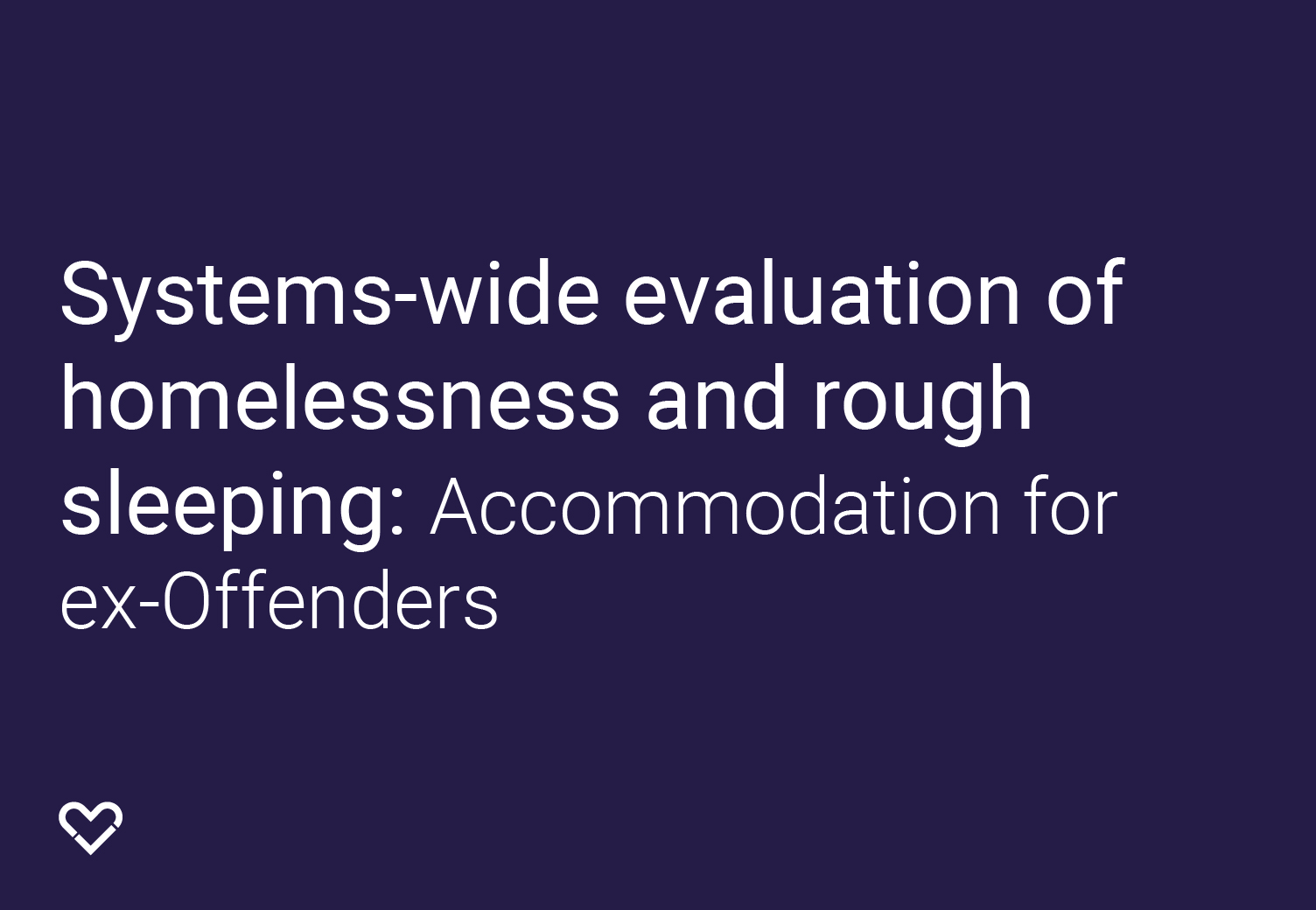
December 11, 2025
Systems-wide evaluation of homelessness and rough sleeping: Evaluation of the Accommodation for Ex-Offenders programme (AfEO)
As part of our deep-dive research study on the interaction of the criminal justice system and the homelessness and rough sleeping systems, this light-touch evaluation of the Accommodation for Ex-Offenders programme (‘the programme’) was undertaken.
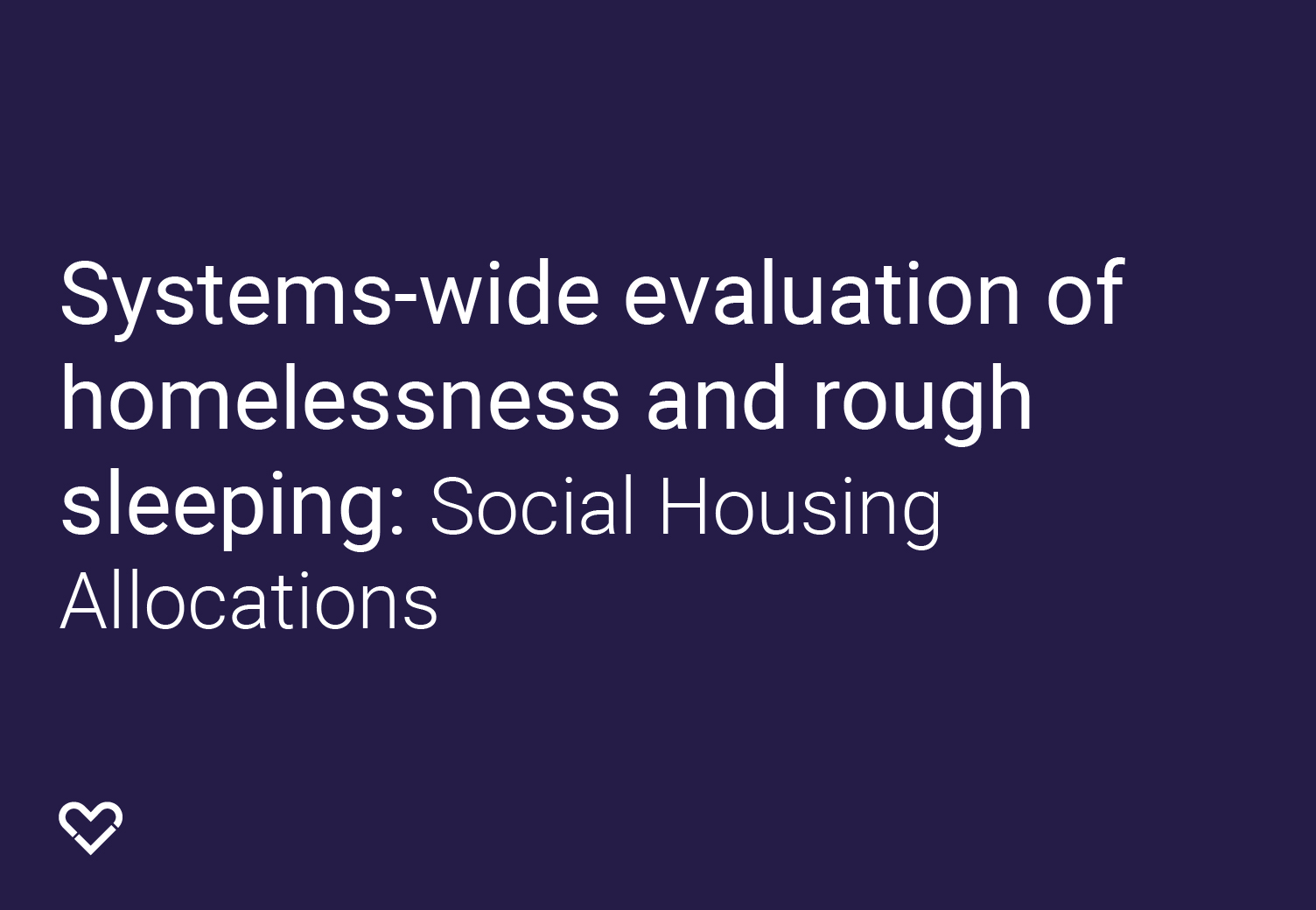
December 11, 2025
Systems-wide evaluation of homelessness and rough sleeping: Social housing allocations
This Systems Wide report focuses on how local social housing allocation policies and practise affect homelessness, drawing on qualitative insights from across England. It identifies structural barriers, such as limited housing stock, and discusses how the use of affordability and qualification checks can prolong homelessness for vulnerable groups
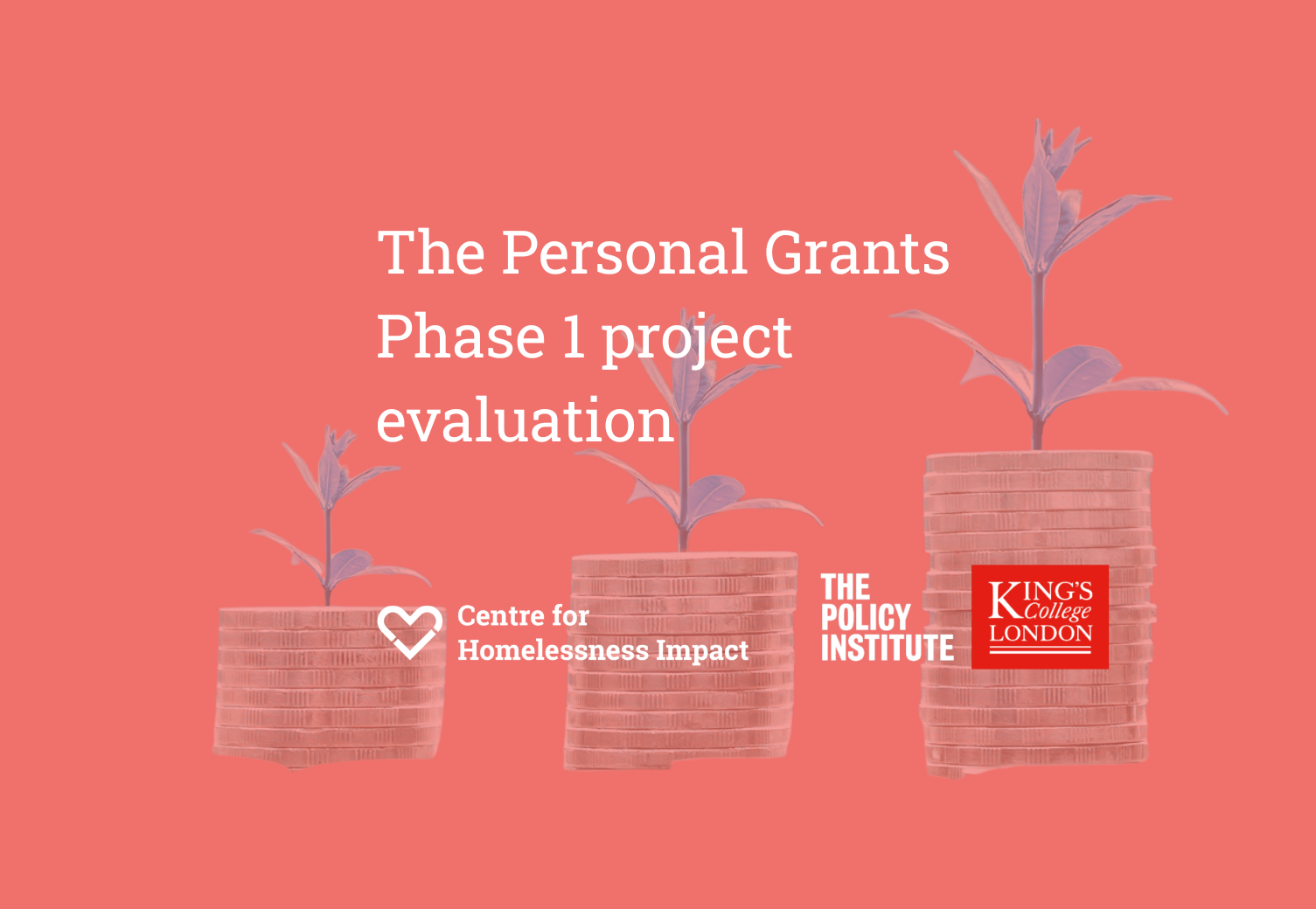
September 19, 2025
The Personal Grants Phase 1 project evaluation
This report summarises phase 1 of the Personal Grant trial: a one-off cash transfer given to people with recent experience of street homelessness.




